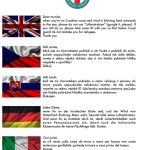A Winning Combination: How empowering women can benefit central and eastern Europe (CEE), is the title of an analysis studying the presence of women in the cooperate sector in the Czech Republic, Croatia, Hungary, Poland, Romania, Slovakia and Ukraine.
Women account for 52% of the population in those countries and more than 60% have university education. Despite that, they account for only 45% of the total workforce, McKinsey’s analysis notes, adding that by increasing the equality of the sexes, central and eastern Europe could unlock €146 billion in GDP a year until 2030, which is roughly the amount of Croatia and Slovakia’s GDP combined.
Three key factors for that would be increasing the participation of women in the total workforce, increasing paid hours for women and better representation of women in high-productivity sectors.
Increasing women’s participation to help curb labour shortage
A partner at McKinsey & Company, Marta Matecsa, underscored that more women participating in the workforce would significantly help resolve labour shortages. Currently, the CEE has 630,000 job vacancies.
If the region reinstates its pre-pandemic growth rate, the number of job vacancies could increase to more than 2 million by 2030, said Matecsa.
Women hold only 8% of director positions
McKinsey’s analysis shows that women account for more than 60% of graduate students in the CEE and as much as 37% of all managers – a share that is larger in comparison to Western Europe and even Nordic countries.
Nonetheless, women account for only about 20% of executive positions and only 8% of director positions. As many as 44% of the leading companies in the CEE do not have even one woman in that role.
In 2012 the share of women in management in CEE was 14%, just one percentage point behind Nordic countries and five percentage points ahead of Western Europe. Eight years later, the gap between the CEE and Nordic countries increased six-fold while the gap between Western Europe and the CEE was reduced to just three percentage points, McKinsey reported.
McKinsey added that a correlation existed between the portion of women in management positions and better financial results in companies.
Pandemic worsens balance between private and business life
The analysis shows that the COVID-19 pandemic has further worsened the balance between business and private life and even though both women and men now spend more time on household chores and unpaid care, more than 40% of female respondents said that the pandemic has significantly contributed to them considering reducing paid work or working hours and transferring to less demanding jobs or even leaving the workforce.
The analysis shows that 54% of women with children under 10 are actually considering just that.
For more about politics in Croatia, follow TCN’s dedicated page.











